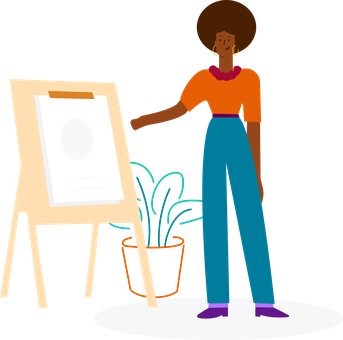Black women are taught from young to be “strong”, “independent” and to “keep your business to yourself”. We are one of the most vulnerable but least protected groups in society, even sometimes amongst our own communities. We are often invisible in the workplace unless we are serving you, invisible in mainstream media, leadership roles and often invisible to organisations seeking to help those experiencing homelessness.
My homelessness, like so many other women arose from relationship breakdowns, losing low-waged/unsecure jobs, and fleeing abuse. My first hurdle was maintaining my dignity whilst sitting in front of someone from the council asking for help. My tears and obvious distress were met with mistrust and judgement.
Maybe it was to do with the stereotyping and assumptions placed on me. Black women are usually seen as “aggressors” and “perpetrators”, unlike our counterparts who are often perceived as “victims”, “innocent” and “fragile” when seeking help.
My advice to homeless service providers: When a Black woman is seeking your assistance become aware of any assumptions you make about her, put it aside and challenge it after. No two people are the same. When someone doesn’t believe you it’s re-traumatising and further dehumanises a person, especially when they are treated the same by others daily. Another thing I urge you to think about is her culture. Black women are taught to keep things to ourselves, to not bring shame to the family and, due to historical and oppression and prejudice, to not trust “outsiders” to help.
Therefore, when a Black woman is telling her story, listen and believe.
Once I challenged the council, I was finally believed and given hope in a form of a hostel to stay. My second hurdle was living in a hostel with so many different cultures and having all white Support Workers. When Covid-19 reached the U.K, it effected lot of Black women at a disproportionate rate. By my 10th month living in the hostel, half of the inhabitants were Black due to the rise of domestic violence and job losses. When me and the other ladies of Black and Mixed heritages complained about a lack of sanitation, we were marked as “instigators” and dismissed by staff. We need diverse frontline workers who can speak different languages, are varied in cultures and understand conflict resolutions.
But it shouldn’t end with creating more diverse workforces. Some of the Black additional staff were too personal with us. They under-reported our issues because of that culture expectation that we should be “strong and independent”. There needs to be more empowerment training to challenge prejudices, understand the impact of mental health issues and handle acts of discrimination.
My last hurdle was housing. I was under 35 without children so I was not helped for a year. At one stage, the hostel I was living in threatened to make me homeless. I did my research on housing laws then taught it to the Manager and the Support Workers. I became the “informal support worker” and helped with housing concerns and flat viewings for 12 women because the women didn’t trust anything the staff said. I held talking circles, poetry slams, cinema nights, gardening clubs and dance nights to help all of us deal with the stress of not getting secure housing.
When I finally got to see private rentals that accepted London Housing Allowance, the estate agents and landlords were happy to accept me over the phone or email, but when I showed up, it was a different story. Most properties were owned by white middle-class families. They showed that they felt “uncomfortable” with much passive aggression. I reported this discrimination to the support workers but it was met with the white liberalism rhetoric that they don’t see colour and I am being “sensitive”. We need staff to be our advocates and allies in challenging discriminations, as well as educating us on how we can legally challenge such out dated attitudes as we try to get suitable accommodations.
Being “strong” and “independent” is what makes us invisible to others and is a chronic burden to Black women that are vulnerable. The narrative needs to change so we can find help, have access to support services and be empowered to challenge any forms of discrimination, both gender and race.
We all deserve to feel at home in our bodies and minds, even if we have no physical home to call our own.
